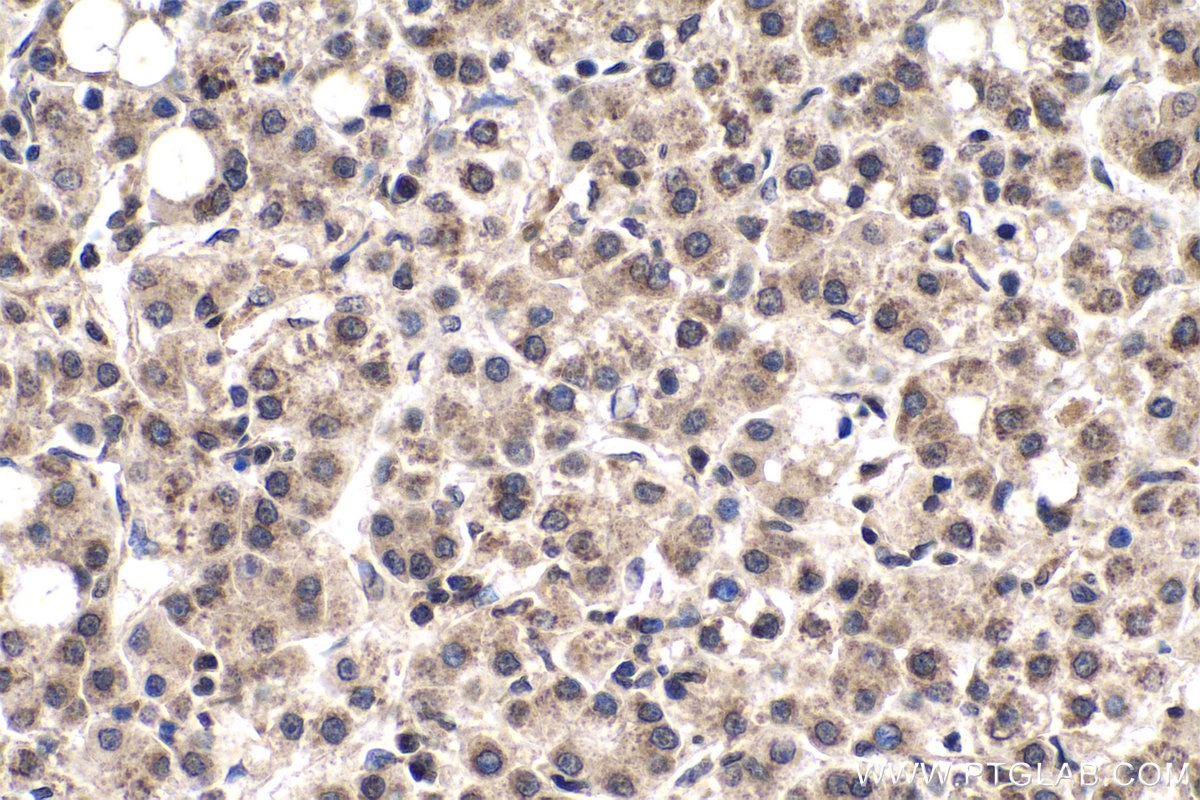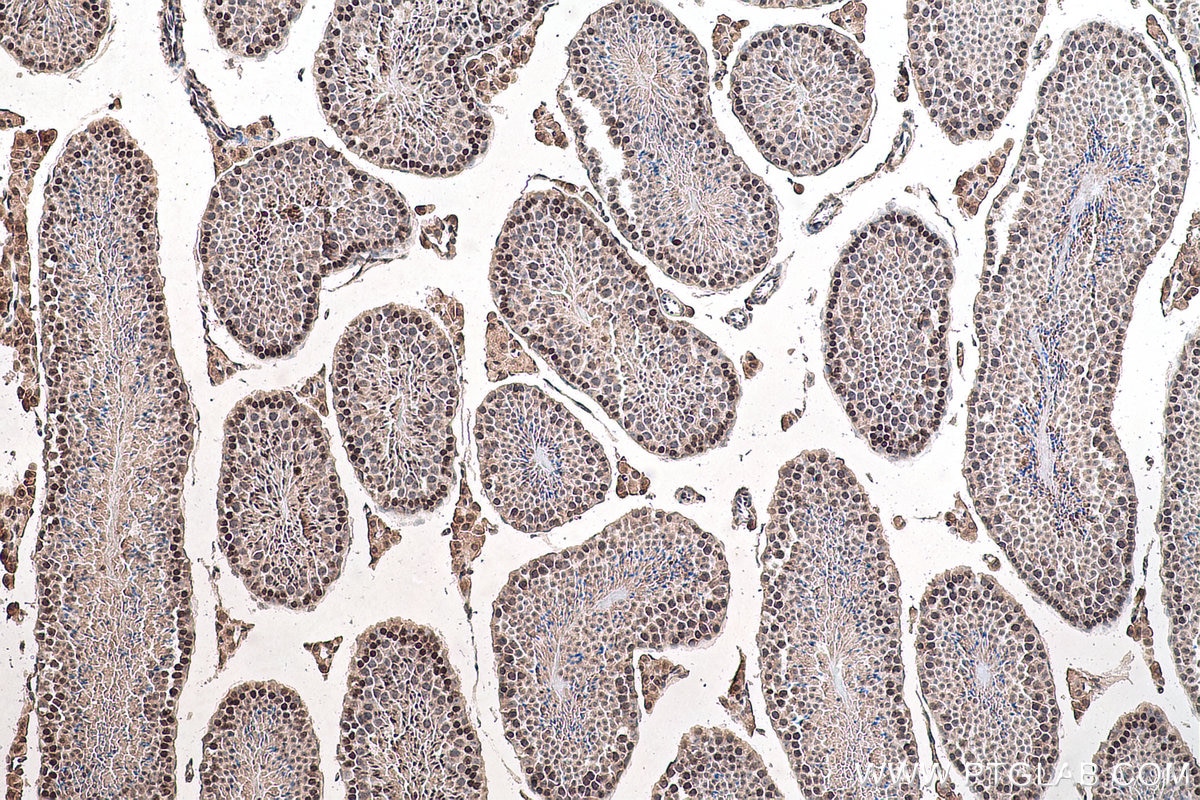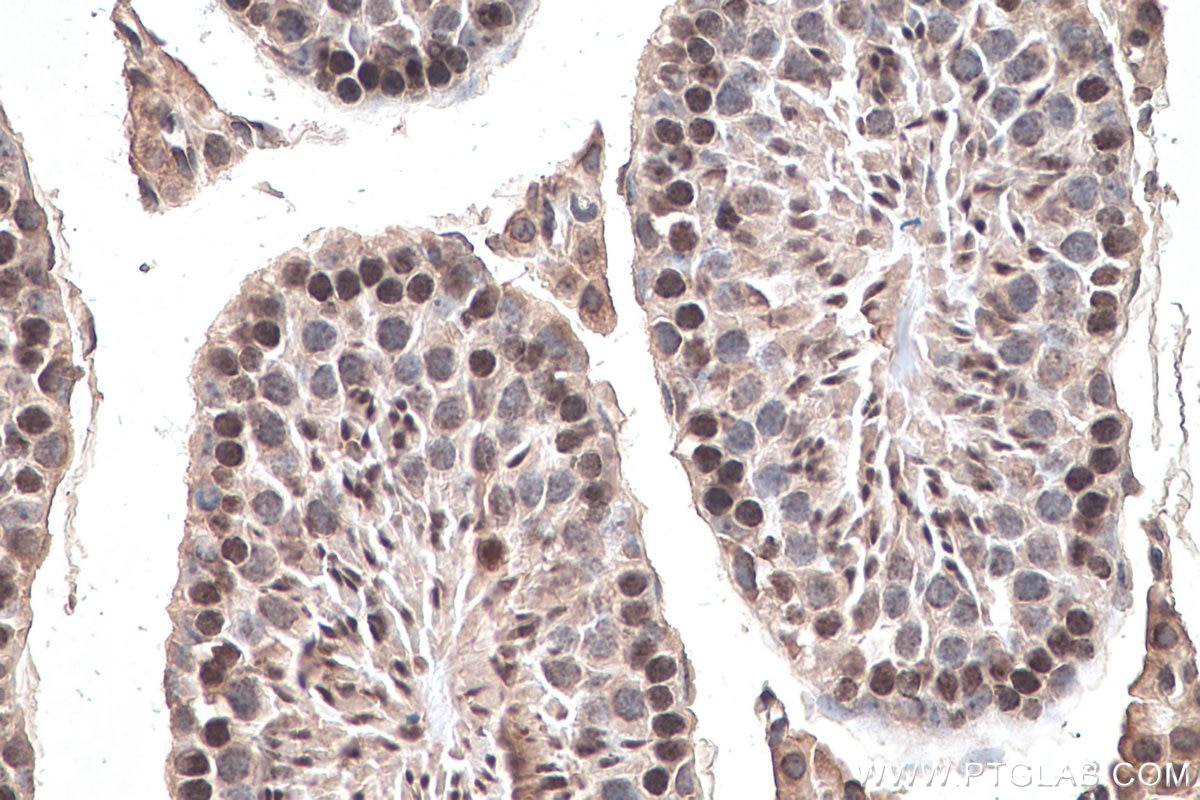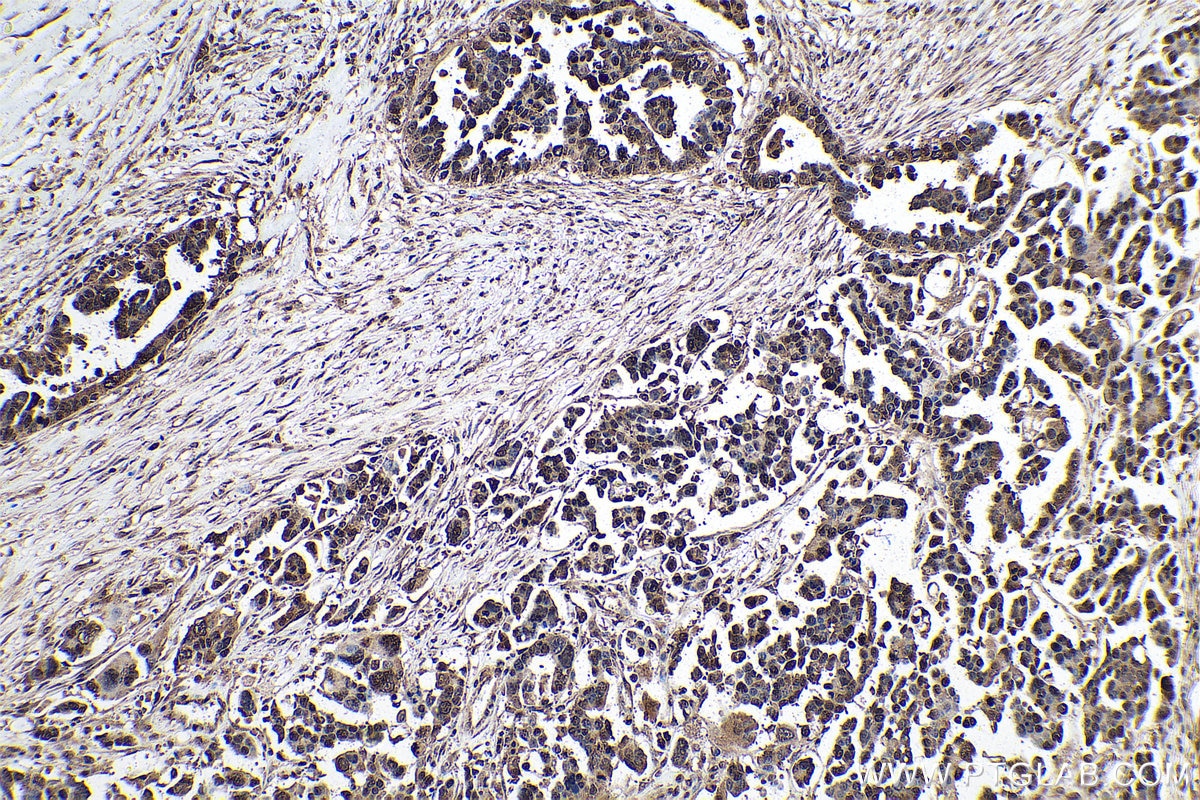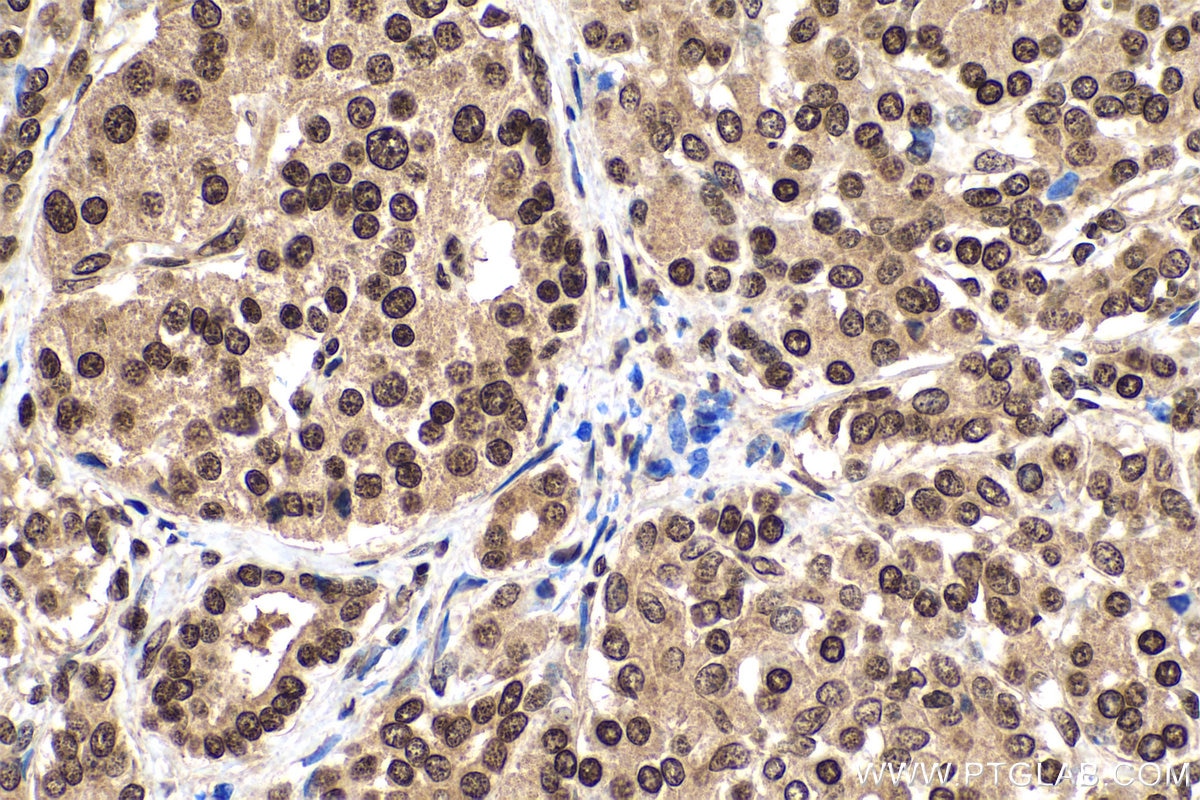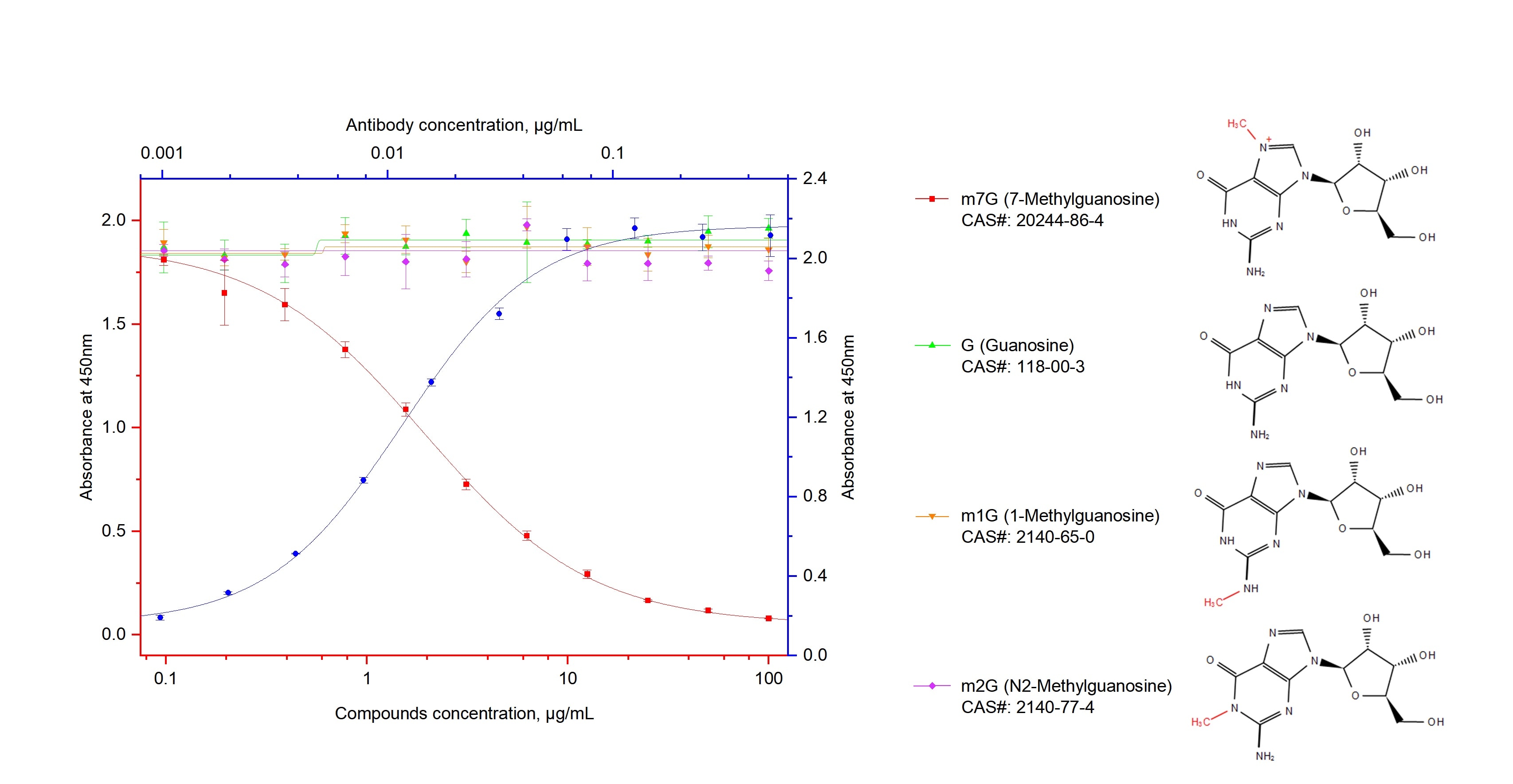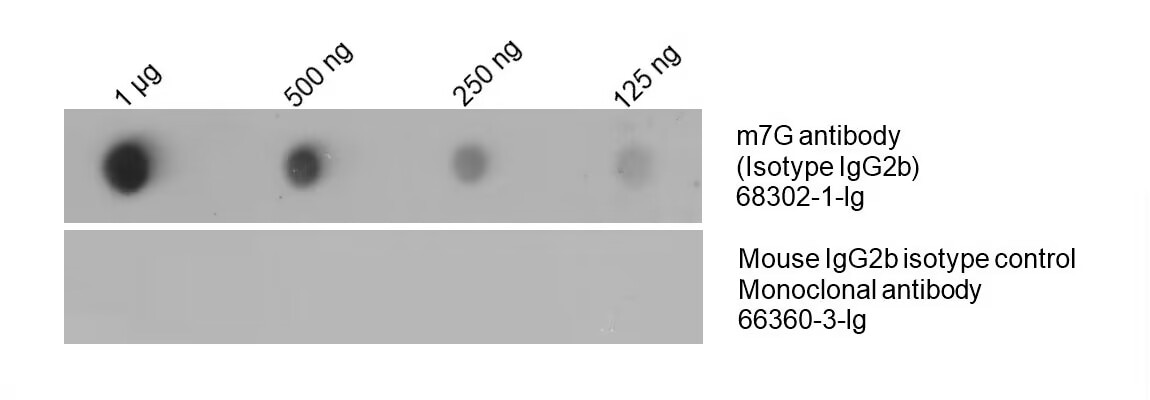Tested Applications
| Positive IHC detected in | mouse testis tissue, human colon cancer tissue, human liver cancer tissue, human pancreas cancer tissue Note: suggested antigen retrieval with TE buffer pH 9.0; (*) Alternatively, antigen retrieval may be performed with citrate buffer pH 6.0 |
| Positive ELISA detected in | compound |
| Positive Dot Blot detected in | HeLa cells |
Recommended dilution
| Application | Dilution |
|---|---|
| Immunohistochemistry (IHC) | IHC : 1:1000-1:4000 |
| Enzyme-linked Immunosorbent Assay (ELISA) | ELISA : 1:10-1:100 |
| DOT BLOT | DOT BLOT : 1:2500-1:10000 |
| It is recommended that this reagent should be titrated in each testing system to obtain optimal results. | |
| Sample-dependent, Check data in validation data gallery. | |
Product Information
68302-1-Ig targets m7G in IHC, Dot Blot, ELISA applications and shows reactivity with chemical compound samples.
| Tested Reactivity | chemical compound |
| Cited Reactivity | mouse |
| Host / Isotype | Mouse / IgG2b |
| Class | Monoclonal |
| Type | Antibody |
| Immunogen |
Peptide Predict reactive species |
| Full Name | m7G |
| Gene Symbol | |
| Gene ID (NCBI) | |
| RRID | AB_2935381 |
| Conjugate | Unconjugated |
| Form | Liquid |
| Purification Method | Protein A purification |
| Storage Buffer | PBS with 0.02% sodium azide and 50% glycerol, pH 7.3. |
| Storage Conditions | Store at -20°C. Stable for one year after shipment. Aliquoting is unnecessary for -20oC storage. 20ul sizes contain 0.1% BSA. |
Background Information
7-Methylguanosine (m7G) is a modified purine nucleoside. It is a methylated version of guanosine and when found in human urine, it may be a biomarker of some types of cancer. In the RNAs, 7-methylguanosine have been used to study and examine the reaction evolving methylguanosine. It also plays a role in mRNA as a blocking group at its 5´-end. The m7G modification actively participates in biological and pathological functions by affecting the metabolism of various RNA molecules, including messenger RNA, ribosomal RNA, microRNA, and transfer RNA. Increasing evidence indicates a critical role for m7G in human disease development, especially cancer, and aberrant m7G levels are closely associated with tumorigenesis and progression via regulation of the expression of multiple oncogenes and tumor suppressor genes.
Protocol for Dot Blot:
https://www.ptglab.com/protocol/68302-1-IgDotBlot.pdf
Protocols
| Product Specific Protocols | |
|---|---|
| IHC protocol for m7G antibody 68302-1-Ig | Download protocol |
| Standard Protocols | |
|---|---|
| Click here to view our Standard Protocols |
Publications
| Species | Application | Title |
|---|---|---|
Mol Immunol ALKBH5-mediated m6A demethylation modification of RAD51 inhibits osteogenic differentiation via promoting DNA damage in osteoporosis | ||
Eur J Med Res A comprehensive analysis of m6A/m7G/m5C/m1A-related gene expression and immune infiltration in liver ischemia-reperfusion injury by integrating bioinformatics and machine learning algorithms | ||
Nat Cell Biol WDR4 drives tumour-associated macrophage reprogramming and tumour progression via selective translation and membrane cholesterol efflux |
Reviews
The reviews below have been submitted by verified Proteintech customers who received an incentive for providing their feedback.
FH Claire (Verified Customer) (08-07-2025) | Works great
|

